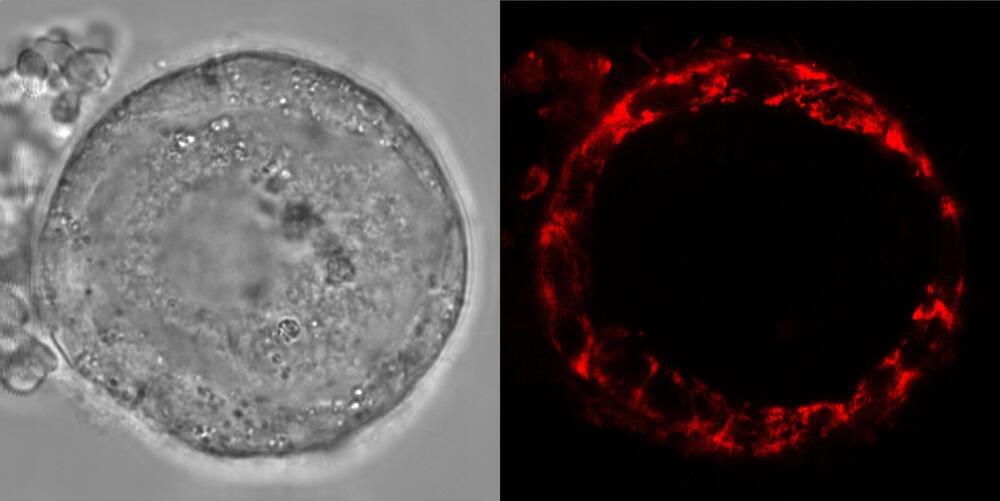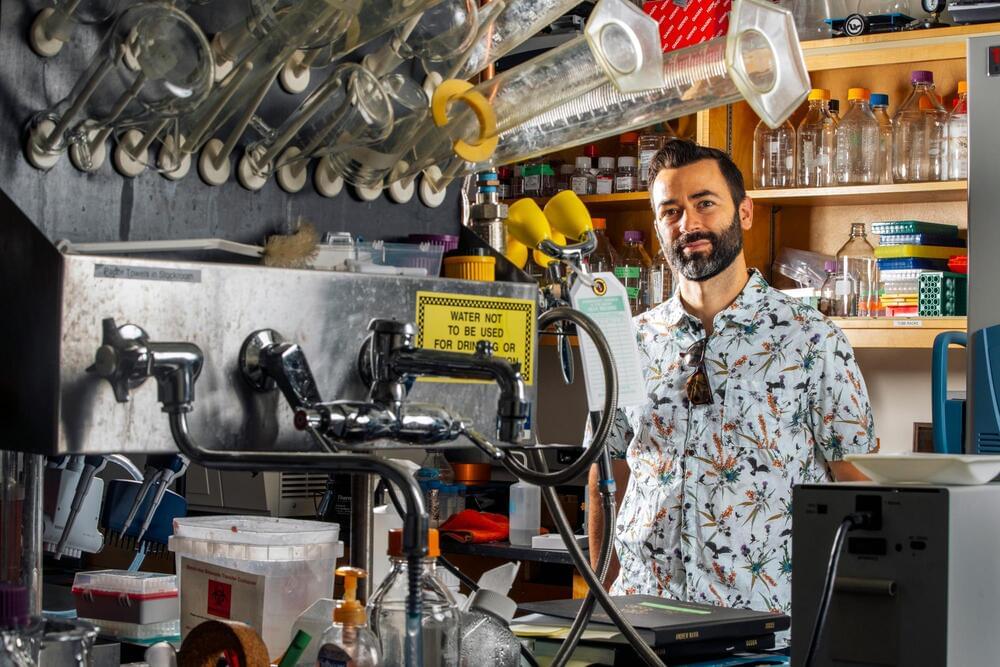
Category: biotech/medical – Page 1,446




Quantifying Biological Age: Blood Test #4 in 2022
Join us on Patreon!
https://www.patreon.com/MichaelLustgartenPhD
Bristle Discount Link (Oral microbiome quantification):
ConquerAging15
https://www.bmq30trk.com/4FL3LK/GTSC3/
Cronometer Discount Link (Daily diet tracking):
https://shareasale.com/r.cfm?b=1390137&u=3266601&m=61121&urllink=&afftrack=
You can support the channel by buying me a coffee!
https://www.buymeacoffee.com/mlhnrca.
Levine’s Biological age calculator is embedded as an Excel file in this link from my website:
Patients reportedly beating cancer with just one tablet a day | 9 News Australia
A new personalised treatment is seeing a number of cancer patients beat the disease with just one tablet a day thanks to a precise tool being used at Sydney’s St Vincent’s Hospital. Subscribe and 🔔: http://9Soci.al/KM6e50GjSK9 | Get more breaking news at 9News.com.au: http://9Soci.al/iyCO50GjSK6
► 9News Lunch Podcast | Listen Weekdays at 12.30pm AEST: https://omny.fm/shows/the-9news-lunch-podcast FOLLOW 9News Australia.
► Facebook: https://www.facebook.com/9News/
► Twitter: https://twitter.com/9NewsAUS
► Instagram: https://www.instagram.com/9news/
Join 9News for the latest in news and events that affect you in your local city, as well as news from across Australia and the world.
#9News #BreakingNews #NineNewsAustralia #9NewsAUS

Human eggs remain healthy for decades
Immature human egg cells skip a fundamental metabolic reaction thought to be essential for generating energy, according to the findings of a study by researchers at the Center for Genomic Regulation (CRG) published today in the journal Nature.
By altering their metabolic activity, the cells avoid creating reactive oxygen species, harmful molecules that can accumulate, damage DNA and cause cell death. The findings explain how human egg cells remain dormant in ovaries for up to 50 years without losing their reproductive capacity.
“Humans are born with all the supply of egg cells they have in life. As humans are also the longest-lived terrestrial mammal, egg cells have to maintain pristine conditions while avoiding decades of wear-and-tear. We show this problem is solved by skipping a fundamental metabolic reaction that is also the main source of damage for the cell. As a long-term maintenance strategy, its like putting batteries on standby mode. This represents a brand new paradigm never before seen in animal cells,” says Dr. Aida Rodriguez, postdoctoral researcher at the CRG and first author of the study.

When cells’ tiny differences have far-reaching implications
Within a given tissue or organ, cells may appear very similar or even identical. But at the molecular level, these cells can have small differences that lead to wide variations in their functions.
Alex K. Shalek, an MIT associate professor of chemistry, relishes the challenge of uncovering those small distinctions. In his lab, researchers develop and deploy technologies such as single-cell RNA-sequencing, which lets them analyze differences in gene expression patterns and allows them to figure out how each cell contributes to a tissue’s function.
“Single-cell RNA-sequencing is an incredibly powerful way to examine what cells are doing at a given moment. By looking at associations among the different mRNAs that cells express, we can identify really important features of a tissue — like what cells are present and what are those cells trying to do,” says Shalek, who is also a core member of MIT’s Institute for Medical Engineering and Science and an extramural member of the Koch Institute for Integrative Cancer Research, as well as a member of the Ragon Institute of MGH, MIT and Harvard and an institute member of the Broad Institute of Harvard and MIT.

Rocket Fuel in Her Blood: The Story of JoAnn Morgan
JoAnn Morgan was the only woman in the launch firing room during the launch of Apollo 11.
Credits: NASA
In spite of working for all of the Mercury, Gemini and Apollo programs, and being promoted to a senior engineer, Morgan was still not permitted in the firing room at liftoff — until Apollo 11, when “Karl Sendler went to bat for me.”

WHO declares rapidly spreading monkeypox outbreak a global health emergency
Tedros said the risk posed by monkeypox is moderate globally, but the threat is high in Europe. There’s clearly a risk that the virus will continue to spread around the world, he said, though it’s unlikely to disrupt global trade or travel right now.
In early May, the United Kingdom reported a case of monkeypox in a person who recently returned from travel to Nigeria. Several days later, the U.K. reported three more cases of monkeypox in people who appeared to have become infected locally. Other European nations, Canada and the U.S. then also began confirming cases. It’s unclear where the outbreak actually began.
The WHO last issued a global health emergency in January 2020 in response to the Covid-19 outbreak and two months later declared it a pandemic. The WHO has no official process to declare a pandemic under its organizational laws, which means the term is loosely defined. In 2020, the agency declared Covid a pandemic in an effort to warn complacent governments about the “alarming levels of spread and severity” of the virus.